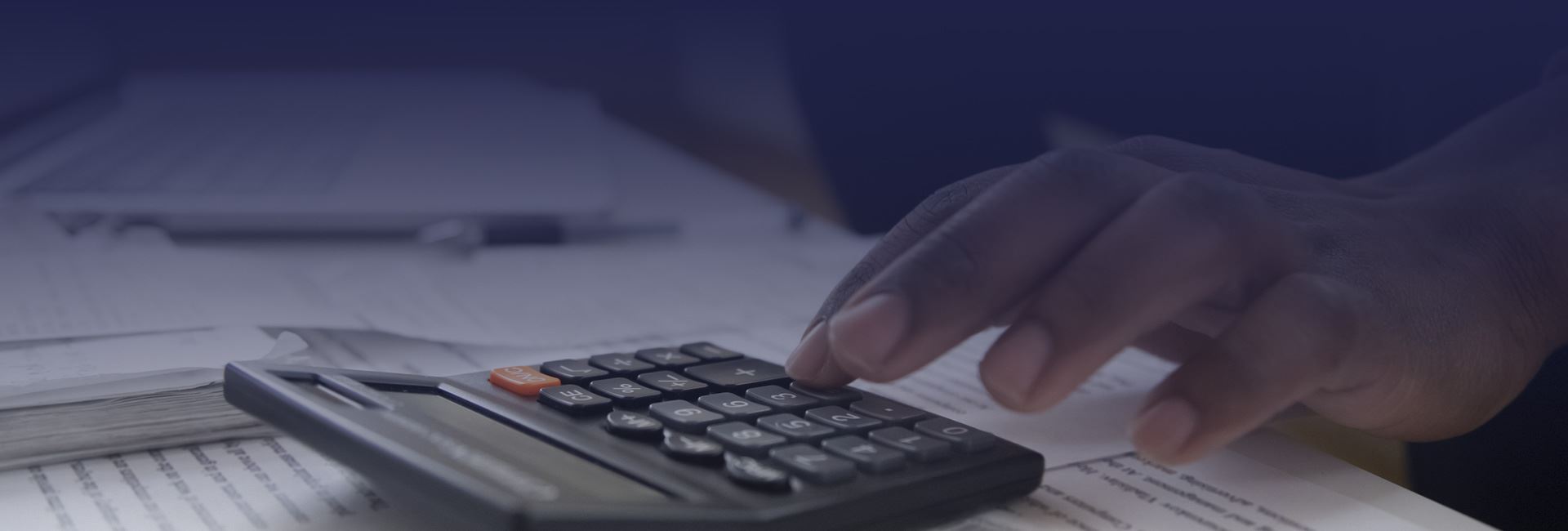
Peachtree Corners Bankruptcy Attorneys
Retain Knowledgeable & Experienced Legal Representation
Each year, approximately 800,000 Americans file for Chapter 7 or Chapter 13 bankruptcy. In this fluctuating economy, a person’s life savings can easily be wiped out by credit card debt, divorce, unemployment, medical bills, and even high-interest loans. For many Georgia residents, bankruptcy provides a fresh start based on a strong financial foundation.
Bankruptcy is a legal action to eliminate, or discharge, your debts. You need an experienced Peachtree Corners bankruptcy lawyer to guide you through this complex, multilayered legal process. At The Sherman Law Group, we work to minimize the amount you pay to unsecured creditors and do everything in our power to get you out of debt as soon as possible. We really listen to your needs and work to the best of our abilities to help you achieve your bankruptcy plan objectives. As a prominent bankruptcy law firm, we have proudly served people just like you by helping them file for debt relief under Title 11 of the U.S. Code. We have helped thousands of clients move on with their lives and live debt free, and we can help you too!
Contact our Peachtree Corners bankruptcy attorneys at (678) 712-8561 to explore your legal options.
What Bankruptcy Option Is Best for Me?
Choosing to file for bankruptcy is a major decision that impacts many factors of your life. At The Sherman Law Firm, we can help you determine which bankruptcy option is best for you by thoroughly examining your debts, your personal income, and the value of the property you own. We get to know your financial situation intimately so that we can help you make the best financial decisions possible.
Why do people file for bankruptcy?
- Job loss or a significant reduction in income
- High credit card debt
- IRS debt
- Medical bills
- Divorce
- Lawsuits
- Judgments
- Creditor harassment
- Late car payments
- Foreclosure/late mortgage payments
Remember, no two bankruptcy cases are the same. For example, if you have credit card debt that you can't afford, and you meet income requirements, you may be able to file for Chapter 7 bankruptcy. However, if you're looking to consolidate loans to save a home or vehicle, Chapter 13 bankruptcy could be your best option.
Understanding Chapter 7
Chapter 7, also referred to as “straight” or “liquidation” bankruptcy, is the most popular debt relief option. By filing for Chapter 7, you can eliminate, or discharge, your legal responsibility to pay certain debts.
Chapter 7 can discharge the following debts:
- Unsecured credit card bills
- Medical bills
- Personal loans
- Debts due after a vehicle repossession or house foreclosure
- Utility bills
- Cell phone bills
- Certain tax obligations
Chapter 7 is available to individual parties, married couples, and businesses. However, there are limitations that need to be considered. For example, you’re only eligible for Chapter 7 if you haven’t previously completed this bankruptcy option in the last 8 years.
Understanding Chapter 13
Chapter 13 is commonly known as the “wage earners plan” or “plan of reorganization.” When you file for this bankruptcy option, you, rather than your creditors, are responsible for proposing a repayment plan. Depending on your circumstances, this repayment plan can last between 3-5 years. Unlike Chapter 7, this bankruptcy option allows you to stop a foreclosure or repossession. Chapter 13 can also help with overdue taxes, child support, and divorce settlement obligations. If you want to avoid wage garnishment and property loss, Chapter 13 may be the best choice for you.
At The Sherman Law Firm, we can help you craft an affordable repayment plan that protects your property and gives you the peace of mind you truly deserve.
What Is the Role of a Trustee?
When you file for bankruptcy, an impartial trustee is appointed to administer your case. In a Chapter 7 case, the trustee’s job is to evaluate and liquidate your assets to maximize the payments that can be made to your creditors. However, if you file for Chapter 13, the trustee’s purpose is to determine whether your proposed payment plan meets the legal requirements of this bankruptcy option. This trustee collects your payments and disburses them to your creditors as per the bankruptcy court’s orders.
Common Bankruptcy Questions
It’s understandable to be nervous about filing for bankruptcy. You may have considered several debt relief options just to avoid it. However, it’s important to remember that the purpose of bankruptcy is to alleviate your debt, not punish you for it. In fact, despite popular misconceptions, this legal process truly can be the start of a new life chapter based on financial stability and independence. It’s true that your credit will be impacted for a few years, but the advantages ultimately outweigh the minor negatives.
To help you better understand this complex legal process, we’ve compiled a FAQ guide based on common client questions.
How can I get a copy of a bankruptcy filing?
The federal judiciary provides public access to federal appellate, district, and bankruptcy court documents through Public Access to Court Electronic Records (PACER), an electronic public access service.
Can I be denied a student loan if I declare bankruptcy?
No. Student loans are a major part of the American education system. The Bankruptcy Code strictly prohibits loan denials because you have filed for bankruptcy.
Are utility services affected?
By law, public utilities, including electricity providers, cannot refuse or cut off service because you have filed for bankruptcy.
Can I own any property after bankruptcy?
Yes! Many people wrongly believe they cannot own any property after filing for bankruptcy. Fortunately, you can keep your exempt property and anything you obtain after the bankruptcy is filed. However, there are exceptions, so it’s best to discuss your case with an experienced lawyer.
Do I have to go to court?
To complete either a chapter 7 or chapter 13 bankruptcy case, you must first attend a short hearing called a “Meeting of the Creditors.” This hearing is not held before a bankruptcy judge; rather, it is presided over by a bankruptcy trustee—an official appointed to oversee your case. In most cases, this hearing is short, and the trustee will only ask questions related to the petition and your overall financial situation. While creditors can be present for this hearing, they rarely make an appearance. You don’t have to worry about facing this hearing alone. We will be there with you!
Can I be fired or denied employment because I declared bankruptcy?
No, you can’t be fired for declaring bankruptcy. Per the Bankruptcy Code, private employers are prohibited from discriminating against current or prospective employees based on their bankruptcy history.
When will the creditors stop calling me?
Once you file for bankruptcy you are legally protected from creditors and bill collectors. If a particular creditor continues to harass you, we can send them an additional notice of your bankruptcy. If this doesn’t stop the harassment, we can take the creditor to court.
I’m current on all my payments. I’ve never been late. Can I still file for bankruptcy?
Yes, you can! We have many clients who look financially solid on paper and appear to be “making it.” However, in reality, they are about to go over a cliff financially. They have used up their savings, lost the ability to transfer balances, and "robbing Peter to pay Paul" just won’t work anymore.
In truth, you’re already bankrupt if you can’t afford your minimum monthly debt payments after paying for your normal monthly living expenses.
If bankruptcy is the right option for me, when should I file for bankruptcy protection?
If bankruptcy is the best option for you, it’s important that you file your case as soon as possible. Once your case is filed, an automatic stay goes into effect and your creditors cannot collect from you. This can protect you from foreclosure, wage garnishment, eviction, repossession, and other collection activities.
Which debts can’t be discharged?
Bankruptcy can eliminate a majority of your debts, however, there are important exceptions.
Bankruptcy can’t discharge the following debts:
- Court ordered payments related to your divorce settlement agreement
- Most taxes
- Debts not listed on your bankruptcy petition
- Money obtained by fraud
- Student loans
- Mortgages and other liens that are not paid in the bankruptcy case
Some debts cannot be automatically discharged. These include back taxes (with exceptions), payroll taxes, damages owed as a result of drunk driving, spousal support and child support, and student loans. Criminal restitution is not dischargeable, nor are debts that result from an act of fraud.
Can I file an emergency bankruptcy petition?
If necessary, we can help you file an emergency bankruptcy petition, or “skeleton,” to stop a pending wage garnishment, bank garnishment, or driver’s license suspension.
Are there alternatives to bankruptcy?
Sometimes bankruptcy isn’t the best solution to your financial woes. Fortunately, we also handle debt negotiation and debt settlement for clients. We can negotiate with your creditors to reduce your interest rates and revise your payment plans. During your initial consultation, we can thoroughly discuss your options and help you decide if bankruptcy is the best choice for you.
Taxes & bankruptcy
Many debtors believe that tax liability can’t be discharged by filing for bankruptcy. Luckily, this isn’t always true; in fact, we’ve helped many clients eliminate their tax debts! The bankruptcy laws regarding taxes are extremely complex and nuanced, so it’s very important to discuss your case with a qualified Georgia bankruptcy attorney.
The Bankruptcy Code allows the discharge of certain tax liabilities. In general, under 11 U.S.C. § 523 and 11. U.S.C. § 507, income tax debts cannot be discharged by filing for personal bankruptcy. However, tax debts can be eliminated if they meet certain specific requirements. This includes that the tax return from which the tax debt arose was due to be filed more than three years before the date on which you filed for bankruptcy. For example, if you accrued an income tax debt from a return that was due to be filed on April 15, 2015, you may not have this income tax debt discharged unless you file for bankruptcy after April 15, 2018. This three-year time period requirement includes extensions.
Schedule a Consultation Today
At The Sherman Law Firm, our legal team has a comprehensive understanding of bankruptcy laws and can help you navigate each step of this complex legal process. We are a small, service-oriented Georgia bankruptcy law firm that is dedicated to representing individuals & small business owners in bankruptcy court. Our attorneys, Bill and Valerie Sherman, look forward to helping you escape the stress of debt. We’ll make sure that you are in the best position possible to get a fresh start!
Contact The Sherman Law Firm at (678) 712-8561 to schedule a consultation.

What Our Clients Say
-
"The one on one personal attention and compassionate care we received from Valerie, Bill & David was beyond what anyone would expect."Heather W.
-
We can't thank you enough. You made a bad situation better. You were all a pleasure to work with. Thank you again!
Mark V. -
I have utilized all types of attorneys in the past and have never had someone work so hard for me! Thank you! I will refer anyone to your firm!!
Kevin B.
Contact Our Offices
Whether you have questions or you’re ready to get started, our legal team is ready to help. Complete our form below or call us at (678) 712-8561.

